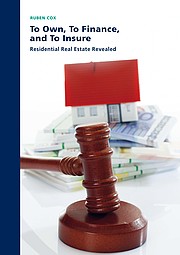To Own, To Finance, and To Insure; Residential Real Estate Revealed Defended on Thursday, 12 September 2013
This dissertation contains four studies that contribute to our understanding of the social and financial consequences of homeownership. The first study examines the effects of homeownership on residential satisfaction and neighborhood safety. I show that neighborhoods with higher homeownership rates are safer and that residents are more satisfied with their neighborhood. In the second study, I provide insight into the decision making process that households undergo when arranging mortgage financing. Specifically, I document that those households who are either less risk averse or more financially literate are more likely to opt for alternative mortgage products such as interest-only mortgages. The third chapter focuses on the mortgage origination process and investigates whether provision-based compensation of financial intermediaries affects underwriting outcomes for households. The results indicate that this, contrary to popular belief, is not the case when mortgage lenders are exposed to default and reputational risks, thereby providing them with an incentive to screen mortgage applications and monitor brokers. The final study investigates the demand for mortgage insurance. Households with recourse mortgage debt face wealth risks in case they are forced to sell their house following an adverse income shock. The findings in this study support the hypothesis that households eligible for insurance who are overconfident are significantly less likely to obtain mortgage insurance.
Keywords
household finance; housing markets; mortgage markets; real estate; behavioural finance; financial intermediaries; agency conflict; homeownership; neighbourhood effects; insurance markets; financial literacy; overconfidence; mortgage insurance












